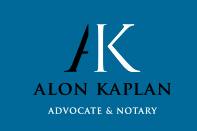
For top estate planning legal services, consider strategic trusts for privacy and precision in asset management, preventing public probate and offering tax advantages. Extensive inheritance law consultations guide through complexities, ensuring effective estate planning with minimized tax liabilities. Family office solutions and private trust companies provide governance and fiduciary oversight for multigenerational asset management. With these tools, you’ll navigate estate planning with clarity and leadership, establishing a foundation for informed decision-making and ongoing success.
Key Takeaways
- Strategic trusts offer privacy, protection, and tax advantages for effective asset management and legacy control.
- Inheritance law consultations simplify probate processes and provide guidance on estate planning tools like trusts.
- Family office solutions ensure tailored asset management and family governance across generations.
- Private trust companies offer fiduciary oversight and customized asset management for families with substantial trust assets.
- Mediation services resolve inheritance disputes, preserving family relationships and ensuring efficient estate management.
Strategic Trusts and Estate Plan Development

When it comes to developing a thorough estate plan, strategic trusts play an essential role in achieving privacy, protection, and precision in asset management and distribution. Trust benefits include bypassing the public probate process, which guarantees your asset distribution remains private. You gain legacy control by setting specific terms for how and when your beneficiaries can access their inheritance, thereby protecting them from squandering wealth. Trusts offer asset protection, shielding them from creditors and legal claims when structured properly. They provide tax advantages, potentially reducing estate, income, and gift taxes. Additionally, trusts guarantee continuity in asset management, allowing your legacy to continue seamlessly across generations. By incorporating philanthropic goals, they further enhance your estate plan’s impact and reach. In addition, trusts are particularly beneficial for non-traditional couples and blended families, ensuring that partners and children are not disinherited due to complex family dynamics. Alon Kaplan’s expertise in trust and estate planning offers invaluable guidance for those navigating complex international and cross-border trust issues.
Comprehensive Inheritance Law Consultation
A thorough inheritance law consultation serves as an essential guide in steering through the complexities of estate distribution, guaranteeing your wishes are honored and legal obligations are met. You’ll gain an understanding of the legal framework, from intestacy laws to the intricacies of wills. Guiding through probate processes can be intimidating, but expert probate guidance simplifies it, reducing emotional strain. Effective use of estate planning tools, like trusts and powers of attorney, guarantees your assets are distributed according to your desires. Estate planning services often involve cross-border inheritance matters, ensuring that international aspects are seamlessly integrated into the estate management process. Addressing tax implications helps minimize liabilities, preserving more of your estate for beneficiaries. Inheritance disputes can be costly, but mediation services offer conflict resolution, keeping family relationships intact. This all-encompassing approach guarantees your legacy is protected and efficiently managed. Consulting an attorney specializing in probate and estate litigation is crucial for navigating legal disputes over inheritance.
Family Office and Private Trust Company Solutions

Steering through the landscape of estate planning goes beyond inheritance law and into the domain of family offices and private trust company solutions. These structures are essential for family governance and wealth preservation, offering tailored approaches to managing and protecting family assets across generations.
Private trust companies (PTCs) serve as business entities that combine corporate trustee advantages with the flexibility of family governance. They guarantee fiduciary oversight and can be customized to address unique asset profiles, such as family businesses or art collections. Families with trust assets over $200M are prime candidates for PTC benefits, as they offer cost efficiency and risk management advantages. Additionally, trusts in prime jurisdictions such as Israel provide diverse legal frameworks that further enhance the strategic management of family wealth.
- Multigenerational engagement in governance enhances family legacy.
- Fiduciary responsibilities guarantee trust management aligns with family values.
- Wyoming’s favorable regulations offer a supportive environment for PTCs.
- Customized asset management for complex portfolios.
- Family control over succession planning and wealth preservation.
Frequently Asked Questions
What Documents Are Essential for Effective Estate Planning?
To effectively plan your estate, you’ll need essential documents like a Last Will and Declaration and Revocable Living Trust to outline asset distribution and avoid probate.
Include healthcare directives to specify medical preferences. Guarantee power of attorney designations for financial decisions and beneficiary designations for accounts.
Don’t forget an advance healthcare directive for incapacitation scenarios.
These documents create an all-encompassing plan, safeguarding your wishes and assets efficiently.
How Does Estate Planning Differ From Probate?
Estate planning and the probate process differ primarily in timing and control over estate distribution.
Estate planning is conducted during your lifetime, allowing you to manage and decide how your assets are distributed after your death. It emphasizes privacy and flexibility.
In contrast, probate occurs post-mortem, involving court oversight to validate and execute wills, often leading to public records and potential delays.
Effective planning minimizes these complexities, ensuring smoother asset distribution.
Can Estate Plans Be Updated After Initial Drafting?
Yes, you can update your estate plan after its initial drafting.
Estate plan updates are essential, guaranteeing your plan reflects current laws and personal circumstances.
Revision importance lies in addressing changes like life events, tax law adjustments, or financial shifts.
Regular reviews, recommended every 2-5 years, help maintain compliance with state laws and maximize tax benefits.
Utilize digital tools for convenience, but consult an attorney to confirm legal soundness and compliance.
What Role Does a Power of Attorney Play in Estate Planning?
A power of attorney plays an essential role in estate planning by granting power authority to an agent, allowing them to make decisions on the principal’s behalf.
This guarantees continuity in managing financial and medical affairs, especially if the principal becomes incapacitated. You should select a trusted agent who understands their legal responsibilities.
This document helps avoid court intervention and coordinates with other estate planning tools to protect assets and respect the principal’s wishes.
How Are Digital Assets Managed in an Estate Plan?
Imagine digital assets as a hidden treasure chest that you must open.
In estate planning, digital asset management requires a detailed inventory of your online accounts, access credentials, and management instructions.
You must protect this inventory while allowing fiduciaries to access it.
Conclusion
In choosing the best estate planning legal services, you’ll encounter options that offer strategic trusts and estate plan development, thorough inheritance law consultation, and family office and private trust company solutions. These services guarantee your assets are managed efficiently, protecting your legacy for future generations. It’s like having a Swiss-army knife for estate planning—versatile and reliable. By selecting a service tailored to your needs, you’ll secure peace of mind, knowing your estate is in capable hands.

